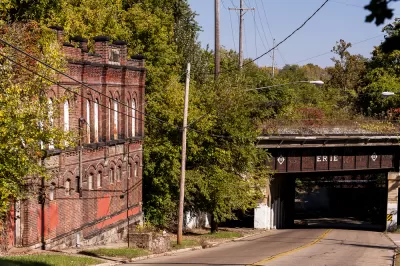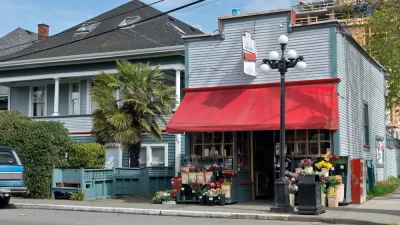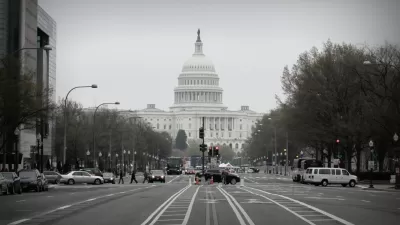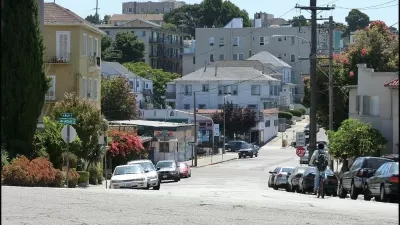Lately it seems like people are forgetting that zoning is a legal process, requiring the support of elected officials.

Jason Segedy, director of planning and urban development for the city of Akron, Ohio, writes about the recent push for wide scale zoning reform, for various ideological reasons.
"The call for reform in is increasingly cross-ideological, involving voices from the left, primarily concerned with social justice and economic inequality; and voices from the right, primarily concerned with free markets and private-property rights," according to Segredy.
For a guide in the process of reform, however, Segredy takes a step back to the origins and evolution of zoning, with the specific case of Akron in mind. When Akron created its zoning code in 1922, the city was one of the most industrialized and polluted cities in the country.
But, as we all know, many of the early 20th century problems that zoning codes were originally written to address are no longer much of a live issue in most places. And like all regulations, there was significant scope creep over time, particularly with regards to restrictions that governed the density and type of residential development. Some of it was done with honorable intentions, as memories of the disease-ridden, crowded and miserable conditions of 19th century industrial slums were still fresh in people’s minds. And, of course, some of it was done with dishonorable intentions, designed to segregate residential neighborhoods by both race and class.
Despite the need for reform to make zoning code a tool more effective in today's world, and with the consequences of the history of zoning more apparent, Segredy's main purpose is to make a point about how the discourse about zoning, despite its reform intentions, is unhelpful for the process of actually delivering effective reforms.
Just as with nearly all of what passes for discourse on public policy these days, it devolves into two groups of ideologues shouting at each other across an unbridgeable chasm - which is one of the primary reasons that our society has ceased to be able to implement meaningful reform of just about anything important.
And then there's the passage that many planners will want to read, which attempts to rehabilitate public opinion about the field in light of the shouting and debating.
There is also a lot of idle chatter about zoning that blames urban planners for all of this. The people who want to abolish single-family zoning accuse the planners of being mindless reactionaries who are standing in the way of progress, while people like Stanley Kurtz accuse the planners of being leftists who are working in the service of Agenda 21 and ushering in the New World Order.
Let’s get real once again. Zoning is not primarily, nor is it fundamentally, an urban planning process. It is a legislative process. It has the force of law, and it is ultimately enacted by legislators, not urban planners. You might be surprised by how little many planners have to do with land use policy in our cities.
Segredy calls this "real talk" about zoning, and there's a lot more included in the source article--all intended to inform a reality-based, not theoretical, approach to zoning reform. Segredy is clearly ready to get to work. Is your local political leadership?
FULL STORY: It’s Time to Get Real About Zoning

Manufactured Crisis: Losing the Nation’s Largest Source of Unsubsidized Affordable Housing
Manufactured housing communities have long been an affordable housing option for millions of people living in the U.S., but that affordability is disappearing rapidly. How did we get here?

Americans May Be Stuck — But Why?
Americans are moving a lot less than they once did, and that is a problem. While Yoni Applebaum, in his highly-publicized article Stuck, gets the reasons badly wrong, it's still important to ask: why are we moving so much less than before?

Research Shows More Roads = More Driving
A national study shows, once again, that increasing road supply induces additional vehicle travel, particularly over the long run.

Judge Halts Enforcement of Anti-Homeless Laws in Grants Pass
The Oregon city will be barred from enforcing two ordinances that prosecute unhoused residents until it increases capacity and accessibility at designated camping sites.

Advancing Sustainability in Los Angeles County Schools
The Los Angeles County Office of Education’s Green Schools Symposium brings together educators, students, and experts to advance sustainability in schools through innovative design, climate resilience strategies, and collaborative learning.

Using Old Oil and Gas Wells for Green Energy Storage
Penn State researchers have found that repurposing abandoned oil and gas wells for geothermal-assisted compressed-air energy storage can boost efficiency, reduce environmental risks, and support clean energy and job transitions.
Urban Design for Planners 1: Software Tools
This six-course series explores essential urban design concepts using open source software and equips planners with the tools they need to participate fully in the urban design process.
Planning for Universal Design
Learn the tools for implementing Universal Design in planning regulations.
City of Moreno Valley
Institute for Housing and Urban Development Studies (IHS)
City of Grandview
Harvard GSD Executive Education
NYU Wagner Graduate School of Public Service
City of Cambridge, Maryland
Newport County Development Council: Connect Greater Newport





























